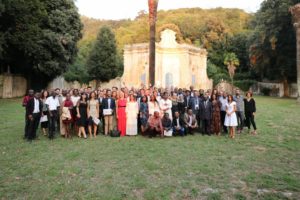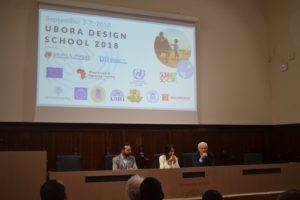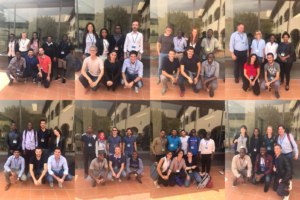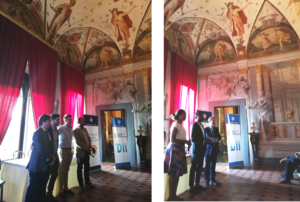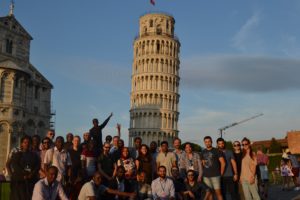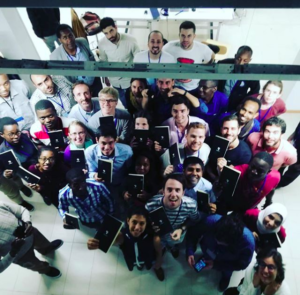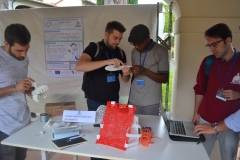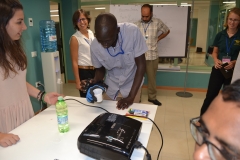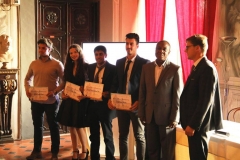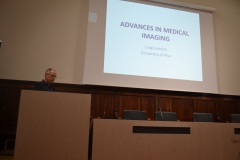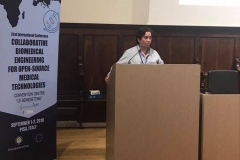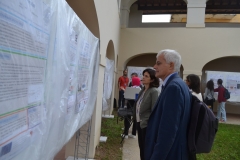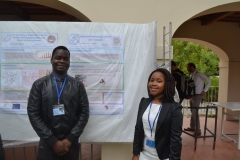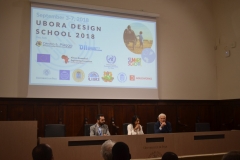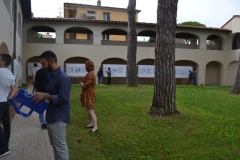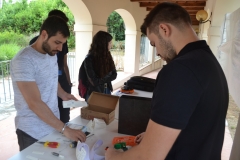The UBORA Design School 2018 was held in the first week of September at the Conference Center Le Benedettine of University of Pisa, in Italy. More than 90 students, mentors, teachers and keynote speakers of 22 different nationalities from 4 continents animated the 5-days school on the design of open source medical devices.
The school, born on the experiences of the ABEC Innovators’ Summer Schools promoted by UNECA and the UBORA Design School 2017 in Nairobi, was structured according to the CDIO methodology empowered with a strong focus on standards and regulation. Thanks to UBORA e-infrastructure, officially launched during the first day of the school, and guided by mentors from industry and academia, students learned how to design a medical device responding to specific needs and compliant with EC regulation.
Furthermore, thanks to the endorsement of the Department of Ingegneria dell’Informazione of the University of Pisa, the school was included in the offer of the University of Pisa Summer School programmes, and recognizing 3 ECTs to attendants.
Classes on design, legislation and prototyping, practical workshops on software and hardware enabling technologies were provided in the first three days of the school, while keynote speeches offered the opportunity to students to be inspired for their future careers.
According to the CDIO methodology, the school followed a “project-based-learning” scheme: at the beginning of the school, students were organized into groups for designing a specific medical device (Click on the project name for the presentation and on the symbol “⊗” for the project documentation on the UBORA e-infrastructure):
The closing ceremony took place at Villa di Corliano, an historical building in the countryside of Pisa, where the best projects were awarded, according to their technical implementation and documentation on the UBORA e-infrastructure.
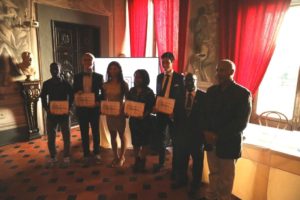
Group #5, ranked at 3rd place, awarded by professors Nzomo (Kenyatta University) and Mridha (Royal Institute of Technology)
Group #5, ranked at 3rd place, presented an innovative system for rehabilitation of the hand based on an elastic sheet. The project includes also an app for providing the correct pace to the person which is performing the hand-rehabilitation exercise.
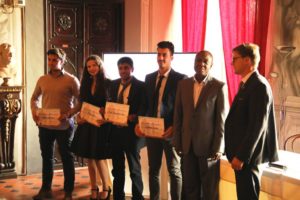
Group #3, ranked at 2nd place, awarded by Dr. Konde (United Nations Economic Commission for Africa) and Prof. Torop (University of Tartu)
Group #3, ranked at 2rd place presented a digital ophthalmoscope, which includes a 3D printed system for focusing the lens, and a smartphone for acquiring the fundus of the eye.
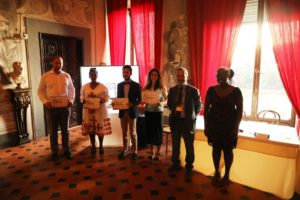
Group #4, ranked at 1st place, awarded by Prof. Mancarella, rector of University of Pisa, and Eng. Madete (Kenyatta University)
Two special awards were assigned to students for their projects developed during the UBORA Design Competition 2018.
The Protocentral Award, for the best project on electronic prototyping and biosignal analysis, was won by Charlin Dongmo Tankeu, of the Université des Montagnes (Cameroon), with the project “Intelligent Walking Stick for the Elderly Population“. The award consisted in an HealthyPI board, for physiological signals acquisition.
The EOS Award, for the best project based on additive manufacturing technologies, was assigned to Adrian Martinez and Rodrigo Zapata, from Universidad Politecnica de Madrid (Spain), their research on the use of FDM molds for carbon fibers processing. They will have the opportunity to continue this research with the support of EOS and its affiliated companies.
For many students, the UBORA design school 2018 was the first moment to present their work (as in the poster session of Monday morning), or in the to get in touch with different cultures: the “city-campus” of Pisa, with its historic city center, was the nice scenario of new friendships and future collaborations.
The Design School 2018 was an amazing adventure, with the final aim at promoting the open source design in biomedical engineering. This seed, nurtured through the UBORA e-infrastructure, will provide innovative and safe medical devices for a more accessible and equitable healthcare.
Here a slideshow of pictures of the week. More on Facebook and Instagram.

